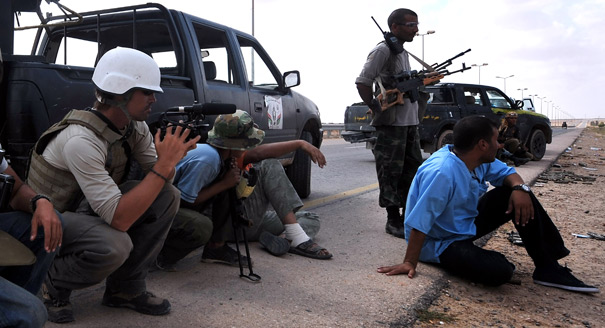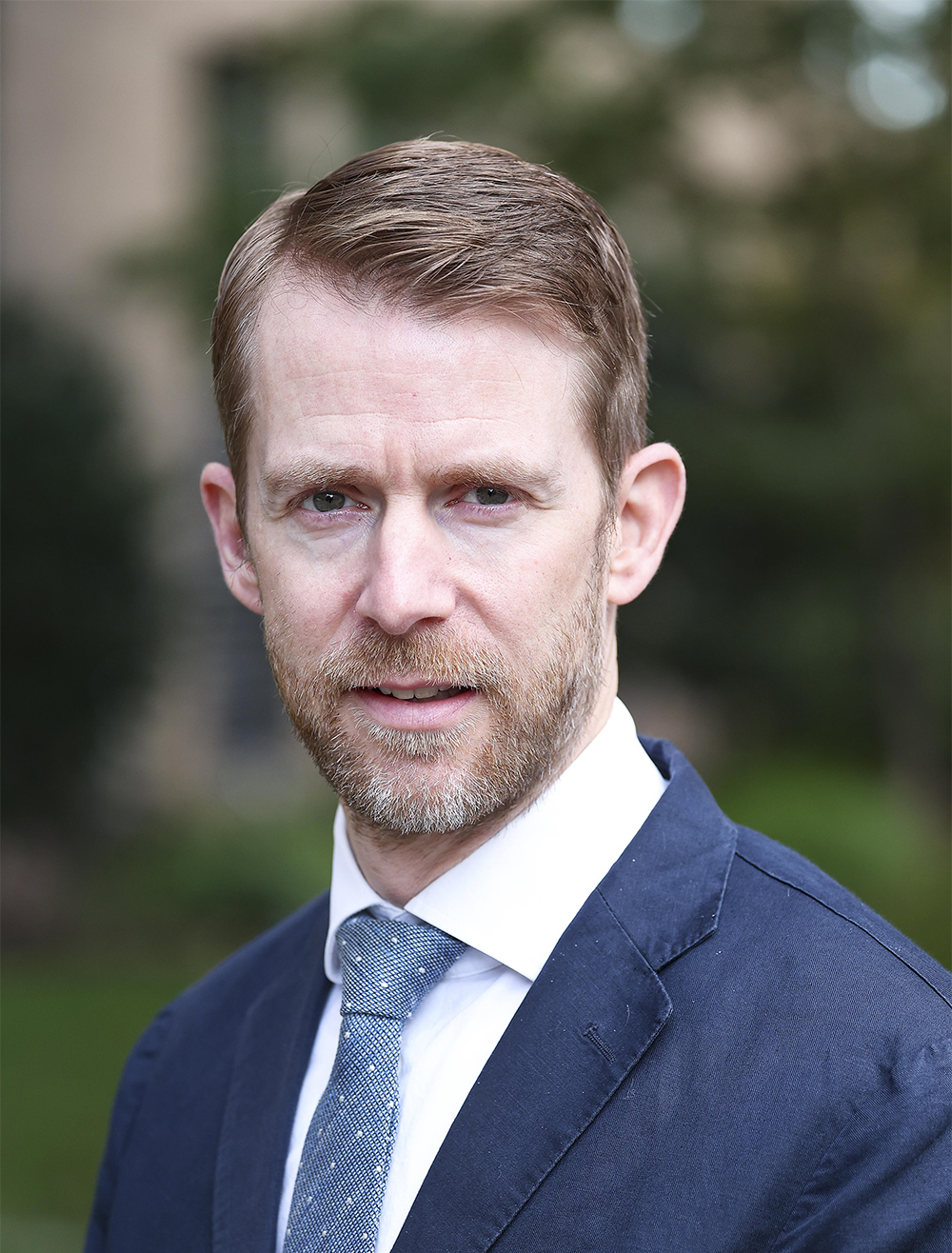The uprisings showed that foreign military intervention rarely produced democratic breakthroughs.
Amr Hamzawy, Sarah Yerkes
{
"authors": [
"David Rothkopf"
],
"type": "legacyinthemedia",
"centerAffiliationAll": "",
"centers": [
"Carnegie Endowment for International Peace",
"Malcolm H. Kerr Carnegie Middle East Center"
],
"collections": [],
"englishNewsletterAll": "",
"nonEnglishNewsletterAll": "",
"primaryCenter": "Carnegie Endowment for International Peace",
"programAffiliation": "",
"programs": [
"Middle East"
],
"projects": [],
"regions": [
"Middle East",
"Gulf",
"Levant"
],
"topics": [
"Security",
"Global Governance"
]
}
Source: Getty
Sotloff, Foley, and the doctors fighting Ebola are part of a vital breed of first responders demanded by a new global reality.
Source: Foreign Policy
In the wake of 9/11, the world developed a special appreciation for first responders, the men and women who ran toward danger when they saw it. They risked all to help others, and fittingly there was a surge of recognition for cops and firefighters and paramedics -- both those lost in the twisted metal of lower Manhattan and those who carried on in the same tradition.
Neither James Foley nor Steven Sotloff wore a badge or a uniform. Nor did Mbalu Fonnie, Alex Moigboi, Alice Kovoma, Mohamed Fullah, or Sheik Umar Khan. But they embodied the first-responder spirit as truly and fully as any of those whose courage inspired us and whose sacrifices broke our hearts at the World Trade Center. For precisely that reason, out of genuine respect for them and their contribution to the world, it is essential we not make the same errors we did amid the anger and grief that marked the earliest days of what we once called the War on Terror.
Foley and Sotloff, the two American journalists who were recently brutally murdered by terrorists, chose to run into the flames of Syria even as the rest of the world looked away. They, like other journalists covering that country's civil war, knew that the risks they faced were grave. But they made a calculation that letting the slaughter in that country go unrecorded, unnoted, or uncommented upon would be compounding those battlefield atrocities with indifference. That would be inhumane and was so intolerable to them that they made their way into a country that many of the world's great and powerful leaders were doing their best to avoid and ignore. What does it say about a person who chooses to go on their own into mayhem that has already claimed almost 200,000 lives and do so without a weapon, without an army, without a congressional resolution?
How deep must be their conviction that bearing witness is essential, the only possible human reaction, the one that might motivate others to action, to actually caring?
Fonnie, Moigboi, Kovoma, Fullah, and Khan were all health-care professionals, doctors, nurses, and technicians who were affiliated with the Kenema Government Hospital's Lassa fever facility in Sierra Leone. All five, described in a moving Washington Post article from late August by Abby Ohlheiser, were co-authors of an important new Ebola study who died of the disease before their work could be made public. By virtue of their work, they were more acutely aware of the risks they faced from the current outbreak, the worst by far of its kind to date, one that has claimed more than 1,500 lives and may infect as many as 20,000 before it has run its course. Khan acknowledged this in late June by telling Reuters, "I am afraid for my life, I must say, because I cherish my life.... Health workers are prone to the disease because we are the first port of call for somebody who is sickened by disease. Even with the full protective clothing you put on, you are at risk." But it was precisely because they knew the risks better than others -- better than those who were infected and spreading the disease -- that they chose to remain on the front lines of the efforts to combat the epidemic. Like other first responders, they too felt that the right response to a crisis is to run toward it rather than away from it.
Of course, Foley and Sotloff were not the only journalists to die in Syria, nor were they the only ones to be lost to the depravity of terrorists. Because they were Americans and because their murders were so gruesomely fed to the media and the grotesque appetites of the Internet, their stories have gained the most attention. But estimates as to the number of journalists lost in Syria alone range from 71 to more than 150. And, according to the World Health Organization, the number of doctors, nurses, and other health-care workers to have succumbed to this current Ebola outbreak was, as of late August, more than 120, with over 240 estimatedto have contracted the disease.
Both of these totals pale to insignificance when weighed against the greater tolls of the crises that claimed the lives of these heroes. And other wars and genocides and epidemics are claiming their own fair share of such heroes, the first responders to these humanitarian catastrophes that many would prefer to ignore. All deserve the kinds of thoughts, attention, and prayers that we have offered on behalf of Foley and Sotloff, as well as our gratitude, because these are the people who, by risking their lives, make it impossible for the rest of usto look away. These are the people who risk their lives in orderto offer a human touch to those whom most of humanity has abandoned. These are the people who demand that we cut through the impotence of high-minded political rhetoric and the incomprehensible mountains of statistics to reveal and serve the human beings at the heart of these problems.
That is why out of respect for their lives and for the spirit of what they do, we must consider our reactions carefully. It is easy for tabloid newspapers to offer up headlines demanding revenge or promoting scare stories. When infected American doctors returned home to the United States to be treated for Ebola, social media erupted with a debate about the risks this entailed, ignoring how hard it is for this disease to spread when properly contained, not to mention the plight of the health workers seeking treatment. This week, the bottom feeders of the American political commentariat sought to use the Sotloff tragedy as an opportunity to bash U.S. President Barack Obama for his inaction in Syria and to call for tough strikes against the journalists' murderers. For them, the death was just a prop, and their railing reflected their own character flaws more than those of any of the people they were decrying.
No, an appropriate response to these tragedies lies not with the empty rhetoric of politicians going through the motions of seeming to care or with the histrionics of hotheads and opportunists. It lies with the ideas that motivated all of these first responders to action: compassion, getting to the facts -- and then taking action even when the risks were high. In the case of Sotloff and Foley, not only does this mean that the world must heed their message that this crisis demands our attention, but it means knowing that spasms or showpieces of revenge are not enough.
Nor is it enough simply to target the Islamic State. The entire Middle East and much of Africa and Asia are now at risk because of the spread of Islamist extremism, and as we learned with our too narrow focus on "core al Qaeda," targeting one group only ensures that others will assume its place. We need a comprehensive strategy to confront all such groups and to cut off their sources of funding and those who would give them comfort. And we must recognize that only through finding successful alternative political solutions to the problems on the ground can we fill the governance void that currently is the breeding ground and preferred environment for extremists. In the case of the Ebola battle, we must similarly not only contain and treat this disease, but recognize that the infrastructure, education, and resource gaps that enable an epidemic like this one to spread as it has threaten the world in ways that are greater than any one disease could.
Indeed, in both cases, what these first responders have shown are the costs of our indifference and inaction to date. And in both cases they demand a response that is not the narrow, crowd-pleasing "deliverables" of a political class that just wants ugliness off the front pages. Both crises are symptomatic of greater threats that demand long-term, global commitments to contain and eliminate them. Both require, in fact, governments, international institutions, and their leaders to act with something like the courage and humanity that defined the lives of Foley, Sotloff, the other journalists who have been lost bearing witness, the health-care workers fighting Ebola, and their colleagues fighting less well known but equally serious battles worldwide.
Carnegie does not take institutional positions on public policy issues; the views represented herein are those of the author(s) and do not necessarily reflect the views of Carnegie, its staff, or its trustees.
The uprisings showed that foreign military intervention rarely produced democratic breakthroughs.


Amr Hamzawy, Sarah Yerkes
China has found a unique niche for itself within the global security ecosystem, eschewing military alliances to instead bolster countries’ internal stability using law enforcement. Authoritarian regimes from the Central African Republic to Uzbekistan are signing up.

Temur Umarov
Is Morocco’s migration policy protecting Sub-Saharan African migrants or managing them for political and security ends? This article unpacks the gaps, the risks, and the paths toward real rights-based integration.
Soufiane Elgoumri
As states without nuclear weapons develop nuclear-powered submarines, can NWFZ regimes adapt to manage new technical, legal, procedural, and normative challenges?


Jamie Kwong, ed., Toby Dalton, ed., Celia McDowall, ed.
As the first states without nuclear weapons set to acquire nuclear-powered attack submarines, Australia and Brazil face new questions and challenges as they seek to responsibly manage the risks of naval nuclear propulsion.


Jamie Kwong, ed., Toby Dalton, ed.